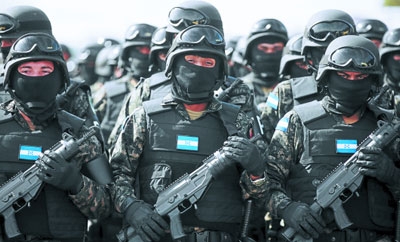Experts from across Latin American have criticized the lack of results produced by the militarization of law enforcement in the region, calling instead for police forces to be strengthened and reformed.
With militarization of the fight against crime high on the agenda in the region at the moment, prominent specialists from El Salvador, Guatemala, Chile, Mexico and Nicaragua met in Tegucigalpa, Honduras on September 24 for the forum “Security Sector Reform in Latin America, with emphasis on police institutions.”
The participants called for the reform and strengthening of police in the region, identifying them as the only force which can effectively reduce violence. Opposition was expressed to militarization not only because military involvement has not yielded the expected results in some places, but also because of human rights violations that have occurred, reported EFE.
InSight Crime Analysis
This forum takes place at a time when the militarization of law enforcement is a hot topic in the region. Several countries have pursued such a policy, however violent crime has not been significantly reduced and reports of human rights violations such as torture, disappearances and extrajudicial killings are common.
The debate is particularly timely for Mexico and Honduras, which are both in the process of forming new military police forces in an attempt to get a grip on their security crises.
In Mexico, President Enrique Peña Nieto has continued to rely on the military to fight organized crime while he pushes ahead with plans for a new militarized police force, the gendarmerie. Throughout the country, the military retain more trust than the police, but have been implicated in serious human rights violations, and in some areas have become involved in organized crime.
Honduras has also attempted to address its security crisis through measures to militarize security forces, including the recent approval of the creation of a Public Order Military Police (POMP). It has also deployed the military to the streets of capital city Tegucigalpa and the world’s most dangerous city, San Pedro Sula, the results of which remain unclear.
The militarization of law enforcement has some advantages, particularly the circumvention of corrupt police and the capacity to carry out military-style operations against heavily armed organized crime groups. However, as the experts suggest, the results of such measures have so far been mixed and often accompanied by a high price to pay.

